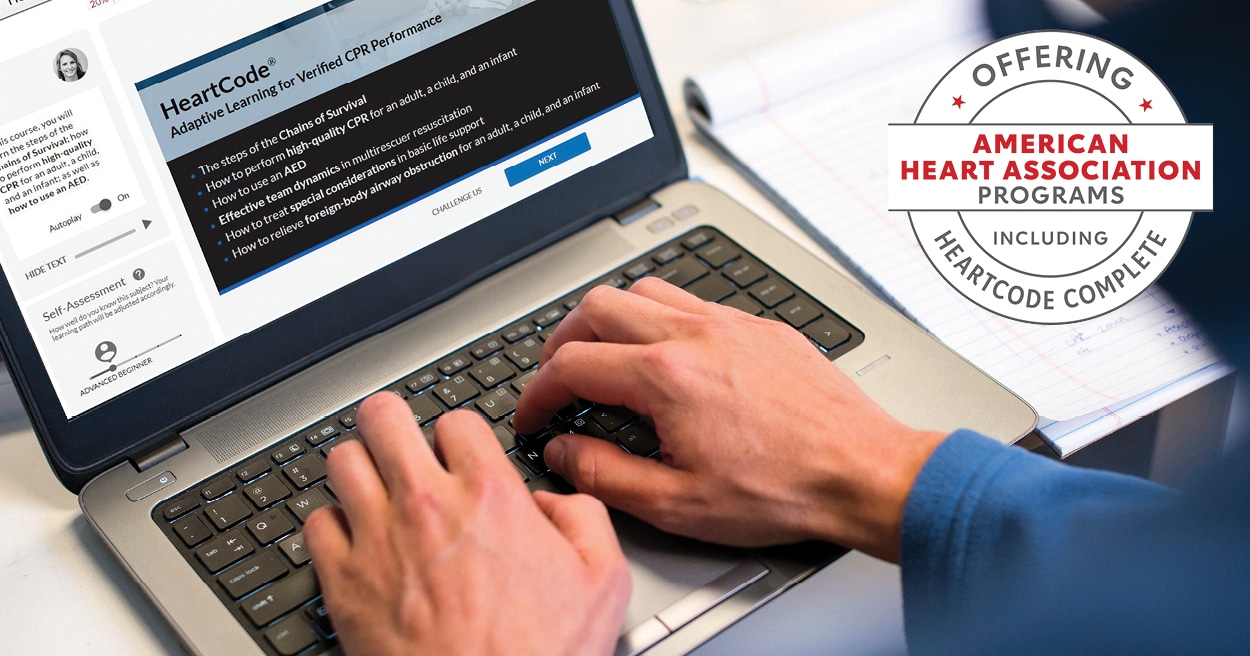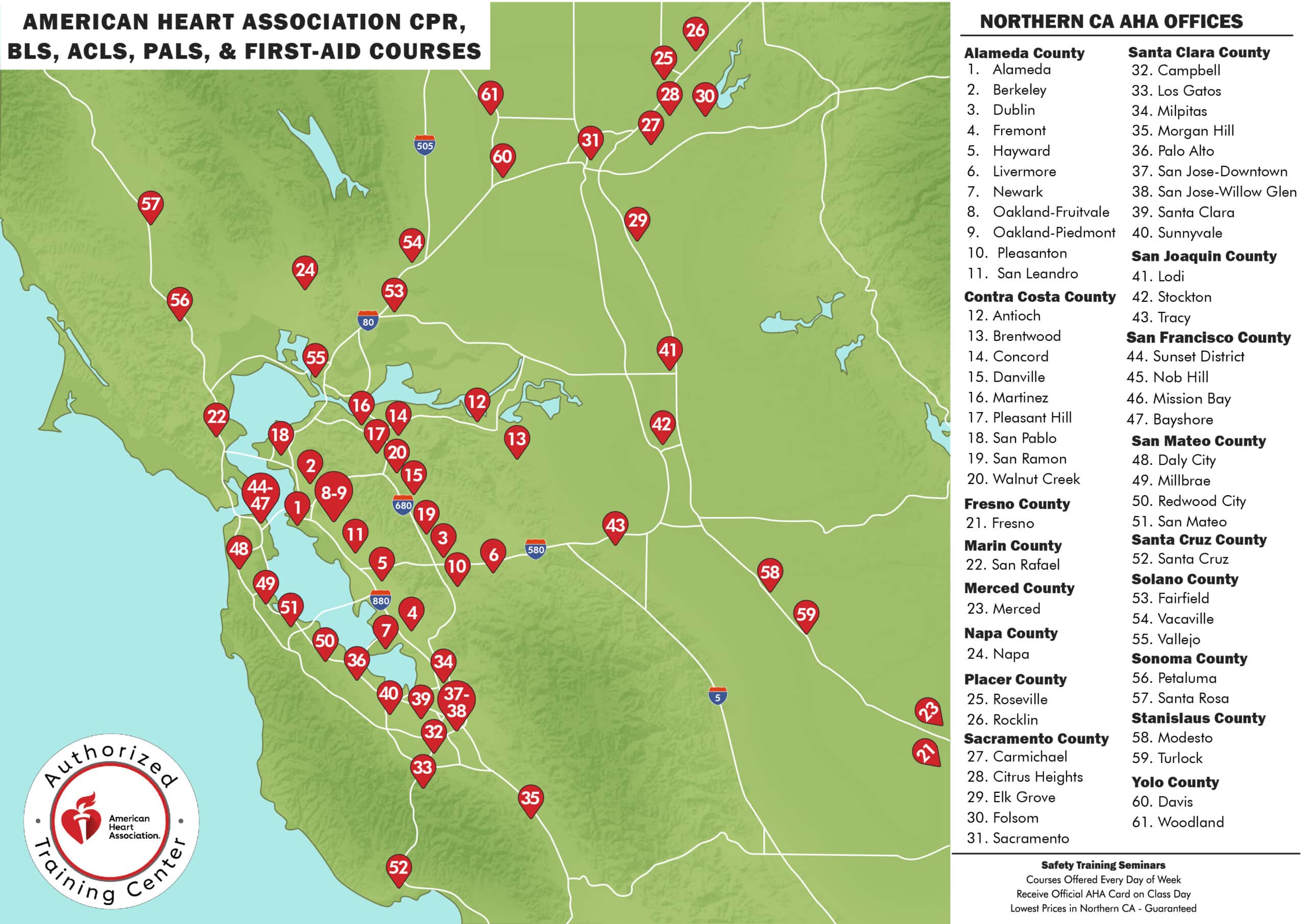American Heart Association© PALS Certification Classes in Santa Rosa

American Heart Association© PALS
Course Name: PALS Pediatric Advanced Life Support (Initial or Renewal)
Online Course Length: 3-4 hours (At your home.)
Skills Testing: 30-40 minutes (At one of our over 60 testing sites.)
Price: $290 (This includes the online PALS course, skills testing, & PALS card.)
Certification: American Heart Association© PALS certification card.
When: PALS classes are offered Monday – Sunday from 7 am to 6 pm
Card Issuance: You will receive the PALS certification card on day of class.
Add ons available: ACLS, BLS, First-aid, Opioid, or Bloodborne Pathogens
Low Price Guranetee: Lowest Prices in Northern CA. Price matching policy.
View Upcoming PALS Courses in Santa Rosa (Larkfield-Wikiup)
View Upcoming PALS Courses in Santa Rosa (Downtown)
View PALS Courses in Santa Rosa & Other Cities Near You
View Upcoming Courses in Santa Rosa – Larkfield-Wikiup and Santa Rosa – Downtown

PALS Certification Classes in Santa Rosa: Empowering You to Respond to Pediatric Emergencies
In Santa Rosa, California, the American Heart Association (AHA) offers Pediatric Advanced Life Support (PALS) classes to healthcare providers seeking to enhance their skills in caring for critically ill or injured children. PALS certification is essential for healthcare professionals working in pediatric emergency departments, pediatric intensive care units, and other settings where pediatric patients may require advanced life support. This article explores the significance of PALS classes, the content covered in the AHA’s PALS curriculum in Santa Rosa, and the impact of PALS training on healthcare providers and patient outcomes.
The Importance of PALS Classes
Pediatric emergencies require specialized care due to the unique physiology and needs of children. PALS training is designed to equip healthcare providers with the knowledge and skills necessary to assess and manage pediatric emergencies, including respiratory distress, shock, and cardiac arrest. By undergoing PALS training, healthcare professionals gain the confidence and competence to deliver high-quality care to pediatric patients in critical situations, ultimately improving patient outcomes.
Key Components of PALS Classes
One of the key components of PALS training is the emphasis on early recognition and intervention in pediatric emergencies. Healthcare providers learn how to assess and manage pediatric patients quickly and effectively, with a focus on providing age-appropriate care. PALS classes also emphasize the importance of teamwork and communication, as effective collaboration is critical in managing pediatric emergencies.
Impact on Healthcare Providers
PALS training has a significant impact on healthcare providers, enhancing their ability to respond to pediatric emergencies with confidence and competence. By acquiring advanced skills in pediatric resuscitation, healthcare professionals are better prepared to deliver life-saving interventions to pediatric patients in critical situations. PALS certification also demonstrates a commitment to excellence in pediatric care, which can enhance professional development and career opportunities for healthcare providers.
Impact on Patient Outcomes
The impact of PALS training extends beyond healthcare providers to directly benefit pediatric patients. Studies have shown that patients who receive care from providers with PALS certification have higher survival rates and better outcomes in pediatric emergencies. By equipping healthcare providers with the skills and knowledge needed to deliver high-quality care to pediatric patients, PALS classes contribute to improved patient outcomes and overall quality of care.
Conclusion
In Santa Rosa, the American Heart Association’s PALS classes play a vital role in enhancing the skills and knowledge of healthcare providers caring for pediatric patients. By providing comprehensive training in pediatric resuscitation techniques, PALS classes prepare providers to deliver high-quality care to pediatric patients in critical situations. Healthcare professionals who undergo PALS training are better equipped to respond to pediatric emergencies, ultimately leading to improved patient outcomes and a higher standard of care in Santa Rosa’s healthcare system.
FAQs
Who should attend PALS certification classes in Santa Rosa?
PALS certification classes are primarily designed for healthcare professionals who are involved in the management of pediatric patients, including pediatricians, emergency physicians, nurses, paramedics, and respiratory therapists.
How long does a PALS certification course typically last?
PALS certification courses usually span over two days, with a combination of didactic instruction, skills practice, and simulated scenarios to ensure comprehensive learning and skill mastery.
Is there a renewal requirement for PALS certification?
Yes, PALS certification is typically valid for two years, after which healthcare professionals are required to undergo PALS renewal courses to maintain their certification.
